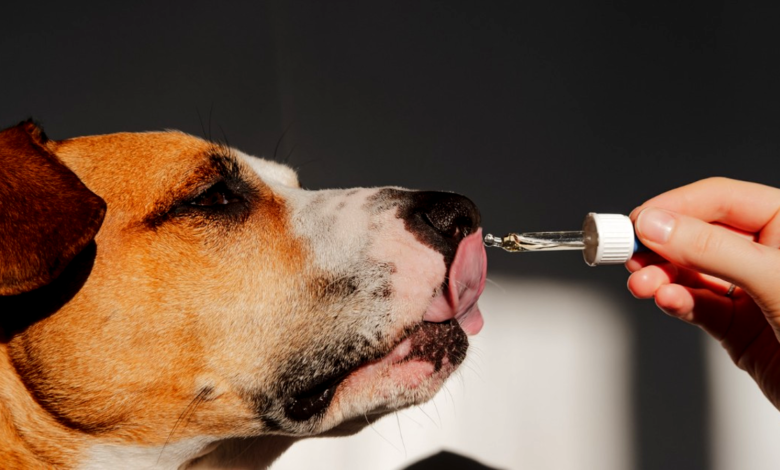
Supplements and Vitamins Do Pets Need Them
Supplements and vitamins for pets Discover if your pet needs them when they help and how to choose safe options wisely.
Supplements and vitamins for pets have become a hot topic among pet owners who want to give their furry friends the best possible care. With shelves packed with everything from fish oil to probiotic chews, it’s easy to wonder: do pets really need these extras, or is a good diet enough? While high-quality commercial pet foods are designed to meet most nutritional needs, certain situations like age, health conditions, or special diets might call for added support. Understanding when and why to use supplements can help pet owners make smart choices without overdoing it.
The truth is, not all pets require supplements, but some can benefit greatly from them. For example, older dogs with stiff joints may find relief with glucosamine, while cats with skin allergies might improve with omega-3 fatty acids. However, giving unnecessary supplements can sometimes do more harm than good, leading to nutrient imbalances or even toxicity. This article explores the key factors to consider from diet quality to a pet’s individual health needs so owners can decide whether supplements and vitamins for pets are a wise addition to their companion’s routine.
Supplements and Vitamins Do Pets Need Them
Essential Nutrients for Pets
Dogs and cats require a precise balance of proteins, fats, carbohydrates, vitamins, and minerals to maintain optimal health. Proteins support muscle growth and repair, fats provide energy and aid in nutrient absorption, while carbohydrates offer fiber and additional energy. Vitamins and minerals play crucial roles in immune function, bone health, and metabolic processes. A deficiency or excess of any nutrient can lead to health issues, making a well-formulated diet essential.
Commercial Pet Foods Complete and Balanced Standards
Reputable pet food manufacturers follow guidelines set by organizations like the Association of American Feed Control Officials (AAFCO) to ensure their products meet minimum nutritional requirements. Foods labeled as “complete and balanced” undergo testing to confirm they provide adequate nutrition for specific life stages (growth, adult maintenance, or all life stages). However, ingredient quality and digestibility vary between brands, and some pets may still experience deficiencies or sensitivities despite eating AAFCO-approved diets.
When Standard Diets Fall Short
While commercial pet foods work well for most animals, certain pets have unique nutritional needs that may require supplementation. Puppies and kittens need higher levels of certain nutrients for growth, while senior pets may benefit from joint-supporting supplements like glucosamine. Pets with medical conditions (e.g., kidney disease, allergies) or those on homemade diets often need carefully balanced supplements to prevent deficiencies. Consulting a veterinarian or veterinary nutritionist ensures pets receive proper nutrition tailored to their individual requirements.
When Are Supplements Necessary for Pets
Targeted Health Support for Specific Conditions
Supplements can play a vital role in addressing particular health concerns in pets. For joint health, large dog breeds and senior pets often benefit from glucosamine and chondroitin, which help maintain cartilage and reduce arthritis symptoms. Omega-3 fatty acids (from fish oil) are excellent for improving skin and coat condition while also providing anti-inflammatory benefits for pets with allergies or joint issues. Pets with digestive problems may need probiotics to restore healthy gut bacteria, and those with compromised immune systems might require antioxidants like vitamins C and E for added protection.
The Importance of Professional Guidance
While supplements can be helpful, they should never be given without proper veterinary advice. Indiscriminate use can lead to nutrient imbalances or toxicity, especially with fat-soluble vitamins (A, D, E, and K), which accumulate in the body. Some Supplements and Vitamins may also interact with medications or worsen existing health conditions. A veterinarian can assess whether a pet truly needs supplementation, recommend the right product and dosage, and monitor for any adverse effects.
Risks and Considerations When Giving Pets Supplements
Dangers of Over-Supplementation
Excessive intake of fat-soluble vitamins (A, D, E, and K) can accumulate in a pet’s body, leading to toxicity and serious health complications. For example, too much vitamin D can cause kidney failure, while excess calcium in growing puppies may disrupt bone Supplements and Vitamins, resulting in orthopedic disorders. Additionally, some human supplements particularly those containing xylitol (a toxic sweetener) or high iron levels can be deadly for pets. Always consult a veterinarian before introducing any new supplement.
Importance of Quality and Regulation
Not all pet supplements undergo strict safety testing, and low-quality products may contain harmful fillers, contaminants, or incorrect dosages. To ensure safety, look for supplements certified by reputable organizations like the National Animal Supplement Council (NASC), which verifies product quality and accurate labeling. Avoid unverified brands or products with vague ingredient lists, as they may not provide the intended benefits or worse, pose health Supplements and Vitamins.
Monitoring for Adverse Reactions
Even high-quality Supplements and Vitamins can cause side effects in some pets, particularly if given in incorrect doses. Watch for symptoms like vomiting, diarrhea, lethargy, or allergic reactions (itching, swelling). Start with the lowest recommended dose and gradually increase if needed, under veterinary supervision. Regular blood tests may be necessary for pets on long-term supplementation to prevent nutrient imbalances. When in doubt, always seek professional guidance before continuing Supplements and Vitamins.
Choosing the Right Supplements for Your Pet
Selecting the right supplement depends on the pet’s specific needs. For joint support, glucosamine and MSM are commonly recommended. Fish oil is excellent for skin and heart health, while probiotics aid digestion. Senior pets may benefit from multivitamins tailored to aging needs. Consulting a veterinarian ensures the supplement is necessary and safe. Blood tests can reveal deficiencies, helping tailor supplementation accurately. Reputable brands with transparent ingredient lists and clinical research backing their products should be prioritized.
Natural Alternatives to Commercial Supplements
Some pet owners prefer natural sources of nutrients over commercial supplements. For example, raw bones provide calcium, while eggs offer biotin for coat health. Pumpkin and sweet potatoes are excellent fiber sources for digestive Supplements and Vitamins. However, natural doesn’t always mean safe some foods, like garlic and grapes, are toxic to pets. A balanced approach, combining high-quality commercial food with vet-approved natural additions, often works best. Always research before introducing new foods and consult a vet to avoid nutritional imbalances.
Read More: Common Pet Diseases in Michigan and How to Prevent Them
Conclusion
Supplements and vitamins for pets can be beneficial in certain situations, but they are not a one-size-fits-all solution. While a balanced, high-quality diet typically provides all the essential nutrients most pets need, some animals such as seniors, pets with chronic conditions, or those on homemade diets may require additional support. Before introducing any supplement, it’s crucial to consult with a veterinarian to assess your pet’s specific needs and avoid potential risks like nutrient imbalances or toxicity. Responsible supplementation, when guided by professional advice, can enhance your pet’s health and quality of life.
Ultimately, the decision to use supplements and vitamins for pets should be based on individual needs rather than trends or assumptions. Pet owners should prioritize a nutrient-rich diet first and only consider supplements when there’s a clear, vet-approved reason to do so. By staying informed and working closely with a trusted veterinarian, you can ensure your pet receives the right nutritional support keeping them happy, healthy, and thriving for years to come.
FAQs
Do healthy pets need supplements?
Most healthy pets on a balanced diet don’t need supplements unless a vet identifies a deficiency.
Can I give my pet human vitamins?
No, many human Supplements and Vitamins contain harmful ingredients for pets, such as xylitol or excessive iron.
What are the best supplements for senior dogs?
Glucosamine, omega-3s, and antioxidants are commonly Supplements and Vitamins for joint and cognitive health.
Are natural supplements safer than synthetic ones?
Not always some natural ingredients can be toxic, and quality varies. Vet approval is essential.
How do I know if my pet needs a supplement?
Blood tests and vet evaluations can determine deficiencies or health conditions Supplements and Vitamins.







